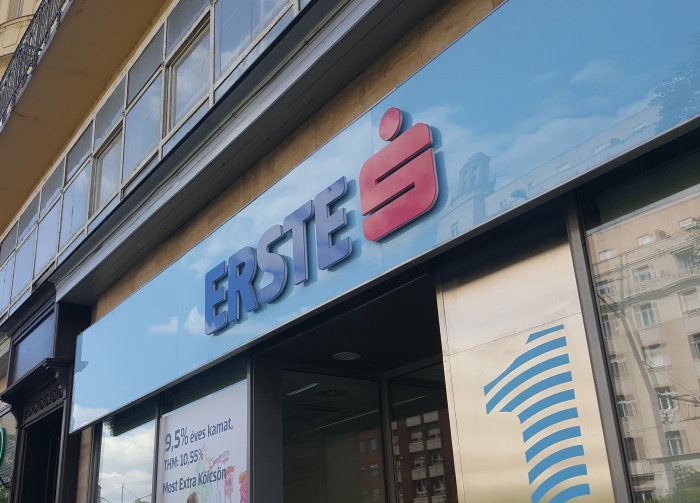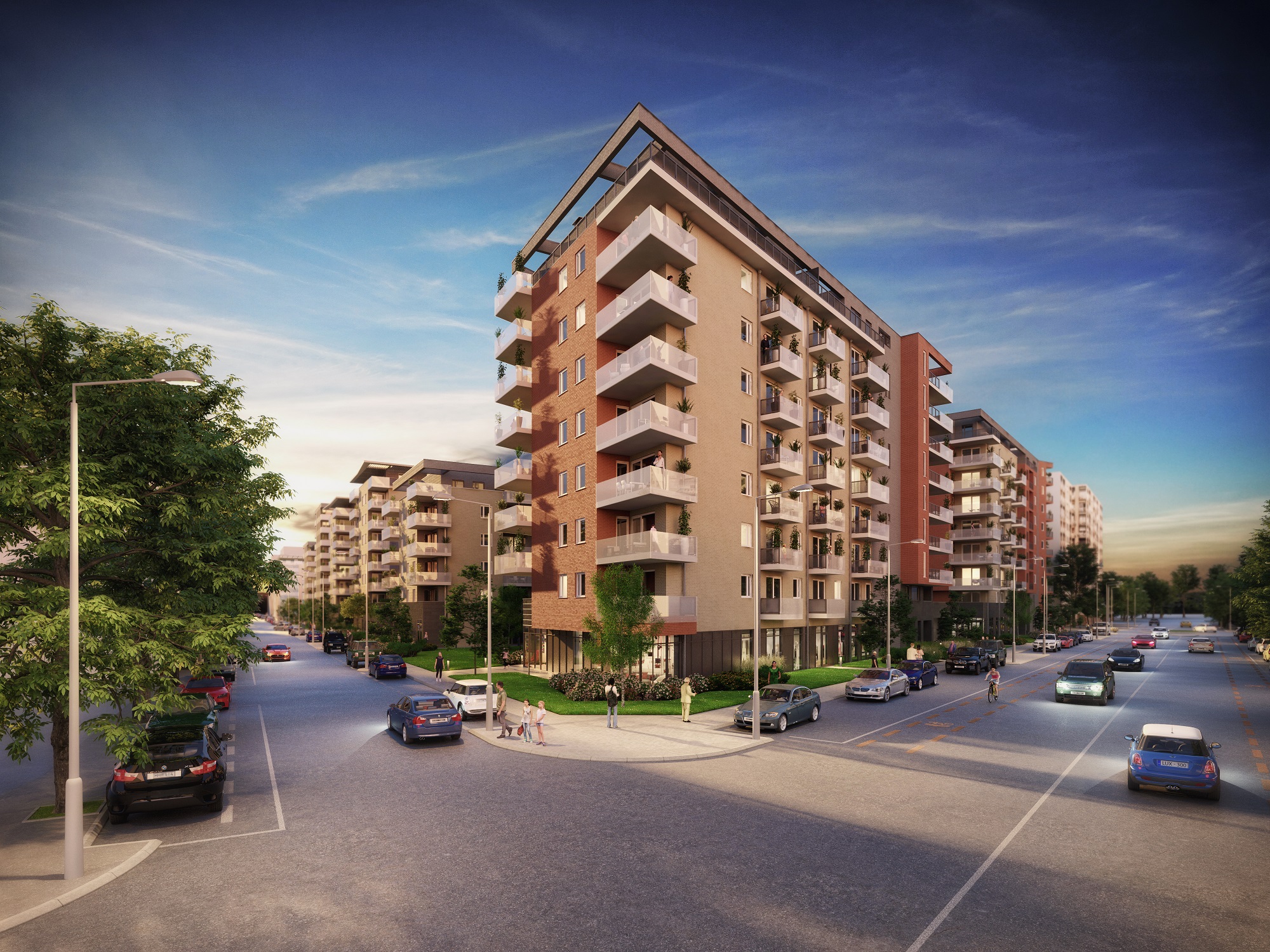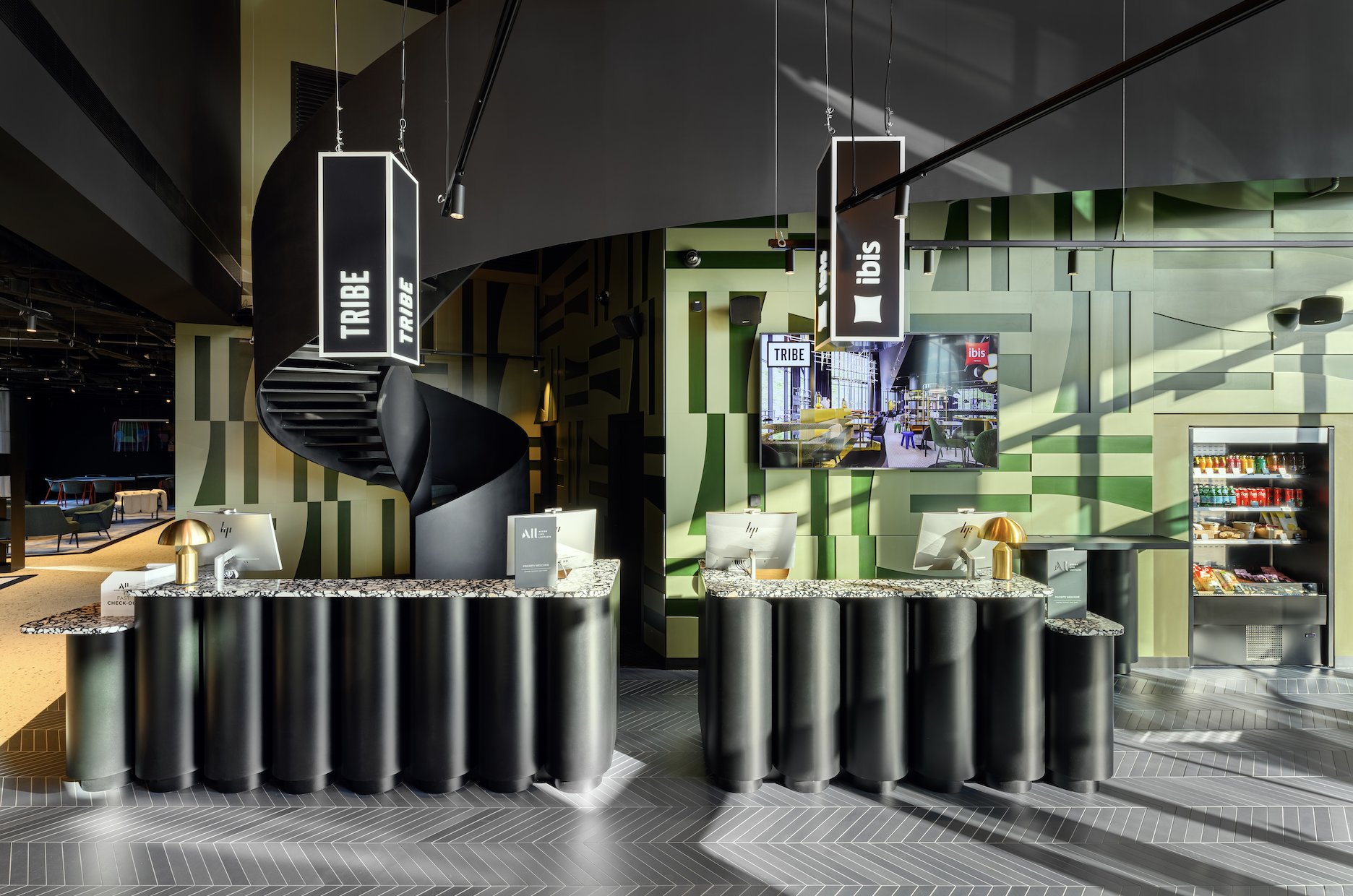Strong Mid- to High-end Hungarian Hotel Pipeline
The W Budapest, viewed from the Opera House opposite.
Hungary, and the region in general, is again seen as an increasingly attractive tourism and business destination. Guest nights have been on an upward trajectory; however, they are still below pre-pandemic levels, with the market negatively impacted by broader geopolitical, economic and financial concerns around demand, and rising development, labor and operational costs.
Despite the perceived complexities of hotel development and investment projects in comparison with more established market sectors such as office or industrial, the hotel and hospitality area has successfully encouraged some investors to move over by concluding long-term lease and franchise partnerships with branded and experienced hotel operators, who provide the expertise needed for the day-to-day operation of the hotels.
Although some projects have been put on hold or are subject to delays, there are still many ongoing developments, including several high-end redevelopments of listed buildings in the historic center of Budapest.
With the relatively positive number of tourist visitors, the hospitality and hotel sector is considered an attractive long-term investment option, although yields are difficult to assess with the current lack of concrete transactions. The Central and Eastern European hotel market is regarded as needing to adopt ESG features in hotels, as is the case in Western Europe.
“The summer looks promising regarding visitor bookings in Hungary. The country is almost back to 2019 levels with regard to RevPAR levels [revenue per available room, calculated by multiplying average daily room rates by occupancy rates]. Certain hotels in Budapest have fully recovered with the return of international visitors,” comments Attila Radvánszki, director of the hotel and hospitality consultancy Horwath HTL Hungary.
Foreign visitor guest nights in commercial and private accommodation for Hungary in April increased by 1.2% year-on-year to 2.88 million, according to the Central Statistical Office. Domestic guest nights fell by 6% to 1.476 million in the same period.
Concerning foreign visitors, German visitors were the largest group at 163,000, followed by visitors from the Czech Republic (107,000) and U.K. tourists (90,000). However, tourism groups and international conference visitors are still lacking. For example, the expo segment requires more long-term planning and business travelers are increasingly conducting business online.
Total guest nights for Hungary in the first quarter of 2023 were 4.5 million, according to CBRE. Foreign guest night figures represent a 15% year-on-year increase, while guest nights from domestic tourists fell slightly, reflecting the divergence in foreign versus domestic tourism trends.
Further Boost
“While we forecast a further boost to foreign tourism in Budapest, regional destinations might await a weaker season due to falling domestic real income,” CBRE warned. Total guest nights rose by 0.6% for Budapest and fell by 14.5% in the rest of Hungary. Occupancy rates for Budapest for the quarter increased to 54%, putting Budapest in third place among CEE capitals.
“The first four months of the year have been promising; guest nights and occupancy have increased compared to previous years but have not reached pre-COVID levels, but average room rate increases have compensated, and revenues are looking good. Profitability is still behind, though, due to increased cost levels,” says Péter Takács, a partner at Newmark VLK Hungary.
Total commercial accommodation rooms in Budapest are put at 21,000, with a further 10,000 short-term rental rooms. Radvánszki of Horwath HTL Hungary calculates that around 5,000-6,000 new rooms are required to meet demand. Several developments are on hold due to rising development costs and the attractiveness of government bonds compared to commercial property. Many investors are simply sitting out in the current difficult financial and economic environment.
The Budapest hotel pipeline for 2023 is put at seven hotels totaling 1,289 rooms, with a further seven buildings, totaling 646 rooms, due to be delivered in 2024, according to Horwath HTL Hungary. From 2025 and later, the longer-term pipeline is put at 12 hotels with 2,119 rooms. The total from 2023-28 is 26 hotels totaling 4,054 rooms. The upscale stratum represents 30% of the 2023-2025 pipeline, with the upper midscale 24% and the luxury segment 20%.
The pipeline outside the Hungarian capital is put at approximately 3,000 hotel rooms within three to four years, focusing mainly on the Balaton region and larger secondary cities like Debrecen, where they supplement industrial development projects.
CBRE has come up with slightly different figures of its own. It says the pipeline and projects under construction in Hungary stands at 3,000-plus rooms, 2,920 of which are scheduled for delivery this year, and a further 514 rooms in 2024. It says there have been no new projects undertaken as the longer-term pipeline is subdued, reflecting market concerns over demand and costs.
Stronger Occupancy
Horwath HTL expects 2023 to be stronger in occupancy based on the pace of room bookings and the scheduled events for the year.
“Provided this happens with a projected average ADR [average income per room] increase of 5-10%, 2023 could easily become a new record year in the history of Budapest,” says the consultancy.
Hungary is only 15% down on the pre-pandemic high in terms of guest nights compared to 2019, according to Takács.
One example of a developer better known for projects in other sectors embracing the hotel market is the Hungarian regional developer and investor Wing. It has concluded an agreement with Accor for a 12,000 sqm hotel within its 42,000 sqm Liberty office development complex in District IX, an emerging business and sports arena district. Somewhat unusually, this will be a dual-branded hotel with Ibis and Tribe each operating half of the 332 rooms. The project is scheduled to be delivered by the year-end.
Budapest is now awaiting the arrival of several luxury brands, such as W and Autograph Collection from Marriott, Kimpton and Vignette Collection from IHG (InterContinental Hotels Group), and the Radisson Collection within the next 24 months. Other worldwide upscale brands, such as Mövenpick and Four Points by Sheraton, will arrive on the market soon, according to Radvánszki.
In Vörösmarty tér, the five-star Dorothea Hotel Autograph Collection Budapest will deliver 216 rooms this summer. The complex is being developed by the Hungarian BDPST Group and the Cretum Group, forming Dorottya Investment.

The Liberty Tribe rooftop viewing terrace.
Significant Supply
“Everyone is watching the luxury sector because this is where there is significant new supply coming in: St. Regis (ex-Buddha Bar), W (the former Ballet Institute), Autograph Collection, Sofitel (under refurbishment), and the Gellért should start renovation soon. Budapest and these properties need to attract a significant volume of upscale travelers for these investors to make a good return,” comments Takács.
W Hotels is due to open the 150-room and suite luxury W Hotel Budapest following the renovation of the UNESCO-listed Drechsler Palace, the former Ballet Institute, on Andrássy út this summer. The project by the Qatari QPR Properties has been ongoing for several years. It has been subject to a number of delays, reflecting the potential difficulties of developing in the historic center with the stringent and often complex planning regulations that require planning permissions from both city and heritage authorities.
The hotel is aimed at the luxury end of the market. It includes destination restaurants, food and beverage space, and a luxury spa that will be open to the wider public, all in a prime location opposite the State Opera House.
This is part of a notable trend in the Budapest hotel market for purchasing and redeveloping classical Central European buildings into hotels in UNESCO-protected locations. This gives the buildings a use-value while maintaining the feel of the city’s historic center.
The 16,000 sqm Drechsler Palace dates back to 1886. It was designed in a French Renaissance and neo-Gothic style by Ödön Lechner and Gyula Pártos. It had been left unused for around 20 years before reconstruction was undertaken by the DVM group with Bánáti + Hartvig Architects as the designers.
“Our task is not only to authentically restore the much-deteriorated building and its interiors but also to prepare it to meet the technical requirements of a luxury hotel,” said the DVM group.
Famous Heritage
The hotel investor and developer BDPST bought the famous heritage-listed Gellért Hotel from Indotek Group. Renovation of the interior into a five-star hotel is due to begin with a scheduled completion date of 2026. Equilor Asset Management, owned by BDPST, has acquired the four-star Sofitel hotel and an adjacent building, also from Indotek. It is also undergoing refurbishment and is currently due to be finished next year.
Outside the capital, the high-end Le Meridien resort in Balatonfüred, on the northern side of Lake Balaton, is scheduled to deliver 102 hotel rooms and four restaurants in addition to 24 residential units in spring 2026. The EUR 6.8 million project, designed by Fazakas Architectural Office, will be the sixth Marriott brand hotel in Hungary but the first outside the capital. CBRE has traced 470 rooms under construction around Lake Balaton.
CEE hotel yields are difficult to estimate in the current environment. Further, the hospitality market has traditionally been less liquid than, for example, the office sector, as hotel investors tend to be more specific in their requirements and deals can be protracted.
CBRE estimates prime hotel yields for leased hotels moving out to 7.25%, rising to 8% for managed hotels. However, this lacks firm evidence due to the lack of transactions concluded. Takács puts yields for lease-operated assets at around 6% for a 10-year contract.
ESG-compliant
As with other real estate sectors, ESG and EU Taxonomy rules and adherence to ESG standards is increasingly central to a decision on a hotel investment.
“ESG is an increasingly important consideration for institutional investors and brands. Investors are now asking whether an opportunity is ESG-compliant, often before asking the price. ESG compliance is going to be a key issue over the next few years and will have a big impact on pricing,” comments Radvánszki.
“It will become an important investment consideration to understand how much CapEx is required to comply with ESG standards; this is particularly important when considering the acquisition and refurbishment of a historic property,” he notes.
If you have a large, branded hotel in a gateway city or prime destination, you must be third-party certified or on track to become so, says Takács. If you are a private hotel investor or want to sell a hotel to a private investor, it is not yet a top priority to have ESG certification, but it is important to be energy efficient.
The obstacles facing developers in Hungary include the scarcity of available financing for hotel projects and the constantly increasing development costs, now reaching Western European levels. For the operators, while the labor shortage is not as pressing as it was back in spring 2022, it is still an issue due to the availability of a talented workforce, according to Radvánszki.
This article was first published in the Budapest Business Journal print issue of June 30, 2023.
SUPPORT THE BUDAPEST BUSINESS JOURNAL
Producing journalism that is worthy of the name is a costly business. For 27 years, the publishers, editors and reporters of the Budapest Business Journal have striven to bring you business news that works, information that you can trust, that is factual, accurate and presented without fear or favor.
Newspaper organizations across the globe have struggled to find a business model that allows them to continue to excel, without compromising their ability to perform. Most recently, some have experimented with the idea of involving their most important stakeholders, their readers.
We would like to offer that same opportunity to our readers. We would like to invite you to help us deliver the quality business journalism you require. Hit our Support the BBJ button and you can choose the how much and how often you send us your contributions.










